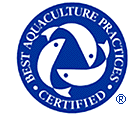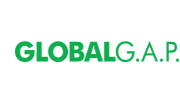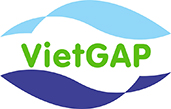SUMMARY
Up to 2024, hundreds sustainable certifications are implemented and certified by aquaculture sector in Vietnam
BAP: Vietnam get total of 727 BAP certified facilities.
ASC: There are 241 farms certified ASC
Global G.A.P: Many companies certified.
- Please click the different certificates belows to find more Vietnamese suppliers and farms granted
BAP

To promote responsible practices across the aquaculture industry, the Global Aquaculture Alliance coordinates the development of Best Aquaculture Practices (BAP) certification standards for hatcheries, farms, processing facilities and feed mills.
The BAP program drives continued improvements via high standards that deliver significant benefits industrywide. The BAP standards cover aquaculture facilities for a variety of finish and crustacean species, as well as mussels.
Related News
ASC

The ASC's mission is to transform aquaculture towards environmental sustainability and social responsibility using efficient market mechanisms that create value across the chain.
ASC aims to be the world's leading certification and labelling programme for responsibly farmed seafood. The ASC’s primary role is to manage the global standards for responsible aquaculture, which were developed by the WWF Aquaculture Dialogues.
Related News
GLOBAL GAP
GLOBALG.A.P.’s roots began in 1997 as EUREPGAP, an initiative by retailers belonging to the Euro-Retailer Produce 
Working Group. British retailers working together with supermarkets in continental Europe become aware of consumers’ growing concerns regarding product safety, environmental impact and the health, safety and welfare of workers and animals.
GLOBALG.A.P. today is the world's leading farm assurance program, translating consumer requirements into Good Agricultural Practice in a rapidly growing list of countries – currently more than 100.
Related News
VIET GAP

To contribute to promoting aquaculture seafood, agriculture products and food safety in general and fruit and vegetable for consumption in the country in particular and exports, the Ministry of Agriculture and Rural Development issued the Criteria VietGAP on 01/28/2008.
VietGAP (Vietnamese Good Agriculture Practices): Practices good agriculture production in Vietnam is based on 04 criteria, such as Standard on production techniques; Food safety including measures to ensure no chemical contamination or physical contamination during harvesting; Working environment aims to prevent abuse of the labor of farmers; Product traceability.
On 31 December 2015, all commercial fish farms must apply and be certified by VietGAP or other international certifications under Decree No. 36/2014/ND-CP dated 29/04/2014 about farming, processing and export of pangasius products. The Decree comes into force on 20 June 2014. The certification program is encouraged in farming many other fishes in Vietnam.